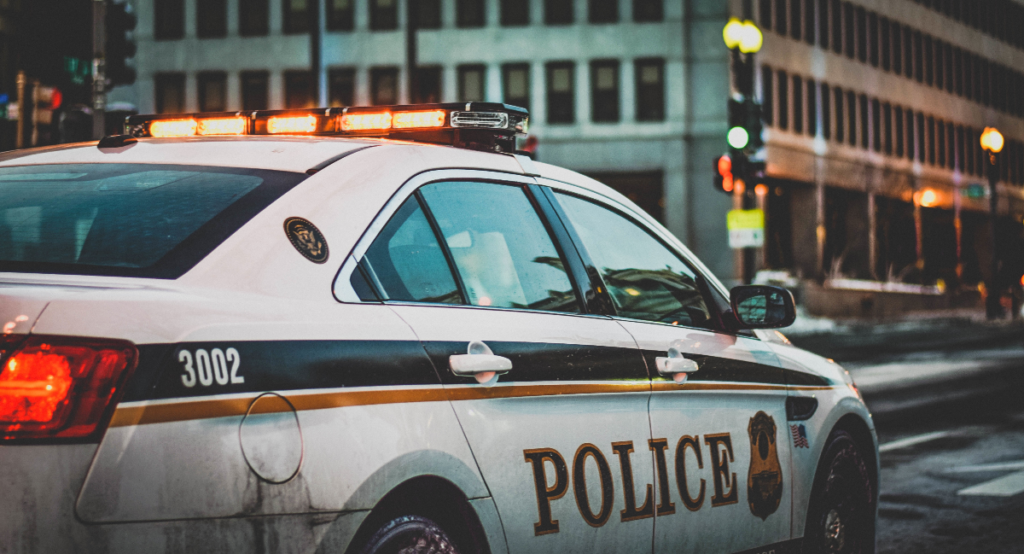The Cato Institute has released Policing in America—an extensive national public opinion report that explores Americans’ attitudes toward the police based on an original Cato Institute/YouGov national survey of 2,000 Americans. Here are eleven key facts about Americans’ attitudes toward the police.
- There are stark racial and partisan divides in favorability toward police, but no group is anti-cop: 68% of white Americans have a favorable view of the police, only 40% of African Americans and 59% of Hispanic Americans also have a favorable view. Republicans (81%) are 22 points more favorable toward the police than independents (59%) and Democrats (59%). Although some groups have less positive views of the police, findings weaken the ascertain that these groups are “anti-cop.” For instance 9 in 10 white, black, and Hispanic Americans oppose cutting police forces and 6 in 10 worry the police have very dangerous jobs. [1]
- 54% say police using military equipment goes too far, while 46% say it’s necessary for law enforcement purposes. Majorities of whites (53%), Hispanics (51%), and blacks (58%) oppose police using military weapons and armored vehicles. Most Republicans (65%) believe police need to use military weapons, while 60% of both Democrats and independents believe police using such equipment goes too far.
- 84% of Americans oppose civil asset forfeiture. Americans oppose police seizing “a person’s money or property that is suspected to have been involved in a drug crime before the person is convicted.” When police departments seize people’s property, 76% say the local department should not keep the assets. Instead Americans think seized assets should go either to the state general fund (48%) or a state-level law enforcement fund (28%). A quarter (24%) say police departments should keep the property they seize.
- 79% support outside law enforcement agencies conducting investigations of police misconduct, while 21% prefer police departments handle such investigations internally. Strong majorities of Republicans (76%), independents (77%), and Democrats (83%) all agree that outside agencies should conduct such investigations.
- 89% of Americans support police body cameras and majorities are willing to raise taxes pay for them (51%) and let police look at the footage before making official statements (52%). Body cameras aren’t a zero-sum proposition: 74% think body cameras protect both officers and citizens equally.
- Only 30% say police should prioritize enforcing drug laws. Instead, Americans want police to prioritize investigating violent crime (78%), protecting people from becoming crime victims (64%), and investigating property crime (58%). Americans across partisan and demographic groups share these top three priorities for law enforcement.
- Nearly half (49%) of Americans say “most” police officers think they are “above the law.” African Americans (61%), Hispanics (61%), and Democrats (61%) are considerably more likely than whites (46%) and Republicans (36%) to say that most police officers think they are above the law. Instead, a majority of whites (54%) and Republicans (64%) say police don’t think they’re above the law.
- 65% of Americans think police officers “commonly” racially profile Americans and 63% oppose it. Majorities of whites (62%), Hispanics (62%), and blacks (77%) oppose police stopping “motorists and pedestrians of certain racial or ethnic backgrounds because the officer believes that these groups are more likely than others to commit certain types of crimes.” Republicans stand out with a slim majority (51%) in favor of racial profiling and 49% opposed. Black Republicans, however, disagree, with 65% who oppose racial profiling and 35% who support it.[2]
- 61% say there is a “war on police” in America. Sixty-five percent (65%) of Americans worry that police officers have “very dangerous jobs,” and 58% feel officers too often must deal with recalcitrant citizens who don’t show enough respect. Although Republicans and Democrats both believe police have dangerous jobs, Republicans are more than 30 points more likely than Democrats to believe there is a “war on police” today (82% vs. 49%) and that Americans show insufficient respect to officers (77% vs. 45%).
- African Americans are nearly twice as likely as whites to report a police officer swearing at them. About a quarter of African Americans (26%) and Hispanics (22%) report police using abusive language or profanity with them compared to 15% of whites. Nearly 4 in 10 African Americans (39%) and 27% of Hispanics report knowing someone physically mistreated by police, compared to 18% of whites.
- 60% say it’s more important to protect the innocent than punish the guilty. When asked which would be worse, 60% say it would be worse to imprison 20,000 innocent people, while 40% say it would be worse to have 20,000 guilty people who are free. Majorities of Republicans (55%), independents (60%), and Democrats (64%) all agree it’s worse to imprison innocent people. However, Donald Trump’s early core supporters stand out with a majority (52%) who say it’s actually worse to not punish the guilty. Other Republican voters disagree. For instance 65% of Ted Cruz’s early primary supporters say it’s worse to imprison the innocent.[3]
Click here to read an overview of the report or here for the full report.
The Cato Institute/YouGov national survey of 2000 adults was conducted June 6-22, 2016 using a sample drawn from YouGov’s online panel, which is designed to be representative of the US population. YouGov uses a method called sample matching, and restrictions are put in place to ensure that only the people selected and contacted by YouGov are allowed to participate. The margin of sampling error for all respondents is +/-3.19 percentage points. The full report (.pdf) can be found here, toplines (.pdf) results can be found here, full methodological details can be found here.



